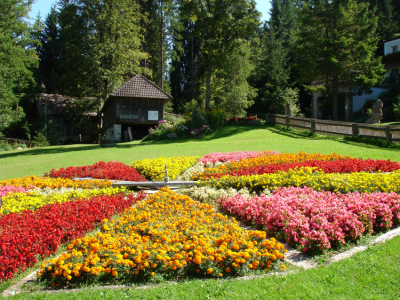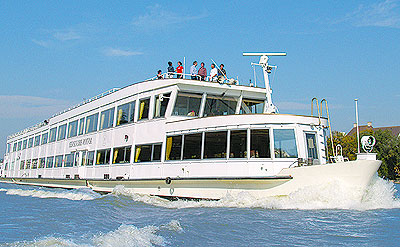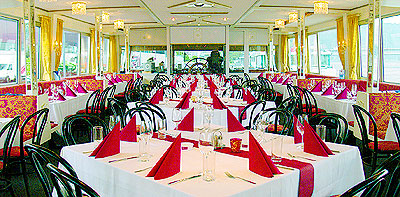|
 |
| News | General | Dates | Committees | Submission | Participants | Program | Travel | Photos | Links |
Tentative Schedule
|
|
|
|
Sunday | Monday | Tuesday | Wednesday | Thursday | Friday | ||
| 08:30 | – | 09:00 |
|
Registration |
|
|
|
|
||
| 09:00 | – | 09:30 | Barvinok | Singer | Erdmann | Welker | Yee | |||
| 09:30 | – | 10:00 | ||||||||
| 10:00 | – | 10:30 | Ardila et al | Coffee | Coffee | Chapuy | Thiem | |||
| 10:30 | – | 11:00 | Coffee | Bostan/Kauers | Bürgisser/Ikenmeyer | Coffee | Coffee | |||
| 11:00 | – | 11:30 | Ardila/Postnikov | Levine | Serrano | Kallipoliti | Buan et al | |||
| 11:30 | – | 12:00 | Bousquet-Melou et al | Poster 2 | Software | Aguiar et al | Woo | |||
| 12:00 | – | 12:30 | Eriksen et al | Musiker/Schiffler | Fink/Giraldo | |||||
|
|
|
|
Lunch | Lunch | Lunch | Lunch | Lunch | |||
|
|
|
|
||||||||
|
|
|
|
||||||||
| 14:00 | – | 14:30 | Salvy | Sottile | Nesetril | Free Afternoon | Schneider | |||
| 14:30 | – | 15:00 | ||||||||
| 15:00 | – | 15:30 | Registration | Coffee | Coffee | Coffee | Coffee | |||
| 15:30 | – | 16:00 | Lenart | Mastnak/Nica | Diao et al | Albenque/Nadeau | ||||
| 16:00 | – | 16:30 | Assaf et al | Dolega et al | Helleloid et al | Berg | ||||
| 16:30 | – | 17:00 | Poster 1 | Excursion | Hersh et al | Fourier et al | ||||
| 17:00 | – | 17:30 |
|
|
|
Poster 3 |
|
|||
| 17:30 | – | 18:00 |
|
|
|
|||||
|
|
|
|
Reception |
|
|
|||||
|
|
|
|
||||||||
|
|
|
|
Banquet | |||||||
|
|
|
|
||||||||
|
|
|
|
||||||||
|
|
|
|
||||||||
|
|
|
|
||||||||
Sunday
| Sun 15.00–18.00 | Registration at the conference office |
| Sun 17.00&ndash | Welcome reception at the Research Institute for Symbolic Computation (Venue: Gemeindesaal Hagenberg, Castle.) |
Monday
| Mon 08.30–09.00 | Registration at the conference office |
| Mon 09.00–10.00 | Alexander Barvinok
(University of Michigan, USA) Integer points in higher-dimensional polyhedra: counting and sampling I plan to discuss a new approach to counting and sampling of integer points in higher-dimensional polyhedra. The idea is to approximate the counting probability measure on the set of the integer points in a polyhedron by the maximum entropy measure on the set of all non-negative integer vectors with the expectation in the polyhedron. Applications to contingency tables (non-negative integer matrices with prescribed row and column sums) will be discussed. The talk is based on a joint work with J. Hartigan. |
| Mon 10.00–10.30 | Federico Ardila, Carolina Benedetti and Jeffrey Doker
Matroid Polytopes and Their Volumes |
| Mon 10.30–11.00 | Coffee break |
| Mon 11.00–11.30 | Federico Ardila and Alex Postnikov
Combinatorics and geometry of power ideals |
| Mon 11.30–12.00 | Mireille Bousquet-Melou, Anders Claesson, Mark Dukes and Sergey Kitaev
Unlabeled (2+2)-free posets, ascent sequences and pattern avoiding permutations |
| Mon 12.00–12.30 | Niklas Eriksen, Ragnar Freij and Johan Wästlund
Enumeration of derangements with descents in prescribed positions |
| Mon 12.00–14.00 | Lunch break |
| Mon 14.00–15.00 | Bruno Salvy (INRIA Rocquencourt, France) Automatic proof of identities: beyond A=B In the past 30 years, computer algebra has made a lot of progress in the design of algorithms operating on mathematical objects. In particular, a few simple but fruitful ideas make it possible to compute sums or integrals of a wide variety of functions. Early work concentrated on hypergeometric identities. This was generalized by Zeilberger to deal with what he called "holonomic" systems. Recently, we generalized this further In a joint work with Chyzak and Kauers so that even more functions and sequences can be handled automatically. The talk will focus on the basic principles that underly all these algorithms. |
| Mon 15.00–15.30 | Coffee break |
| Mon 15.30–16.00 | Cristian Lenart
Combinatorial Formulas for Macdonald and Hall-Littlewood Polynomials |
| Mon 16.00–16.30 | Sami Assaf, Persi Diaconis and K. Soundararajan
Riffle shuffles of a deck with repeated cards |
| Mon 16.30–18.00 | Poster session |
Tuesday
| Tue 09.00–10.00 | Michael F. Singer (North Carolina State University, USA) Differential Groups and the Gamma Function I will develop a Galois theory of linear difference equations where the Galois groups are linear differential groups that is, groups of matrices whose entries satisfy a fixed set of polynomial differential equations. These groups measure the differential dependence among solutions of linear difference equations. I will show how this theory can be used to reprove Hoelder's Theorem that the Gamma function satisfies no differential polynomial equation as well as new results concerning differential dependence of solutions of higher order difference equations. |
| Tue 10.00–10.30 | Coffee break |
| Tue 10.30–11.00 | Alin Bostan and Manuel Kauers
Automatic Classification of Restricted Lattice Walks |
| Tue 11.00–11.30 | Lionel Levine
Chip-Firing And A Devil's Staircase |
| Tue 11.30–12.30 | Poster session |
| Tue 12.30–14.00 | Lunch break |
| Tue 14.00–15.00 | Frank Sottile (Texas A&M University, USA) New Hopf Structures on the Planar Binary Trees Two of the most interesting combinatorial Hopf algebras are the Hopf algebras of permutations and of planar binary trees. These fit into an interesting commutative diagram involving the symmetric, noncommutative symmetric, and quasisymmetric functions. They also each have two different bases related by Moebius inversion on a poset which reveal a rich interaction between their algebraic structure and the combinatorics of permutations and of trees. These posets are the edge graphs of the permutahedra and the associahedra, and the algebra structure is also linked to the structure of these polytopes. Both the permutahedra and associahedra arise naturally in homotopy theory, and the point of departure for this talk is another family of polytopes, the multiplihedra, which also arose in homotopy theory. Natural cellular maps from permutahedra to associahedra (which induce maps of Hopf algebras) factor through the multiplihedra. Restricting this map to their vertices factorizes the map from permutations to trees. The intermediate objects are certain bi-leveled trees. We show how to put algebraic structures on bi-leveled trees so that their linear span M becomes a module over the Hopf algebra of permutations and a Hopf module algebra over the Hopf algebra of trees. A second basis of M, related to the first via Moebius inversion on the multiplihedra helps to elucidate these structures. Bi-leveled trees also admit a second structure as a Hopf algebra, and we identify other combinatorial objects between permutations and trees which similarly are related to polytopes and admit some Hopf structures. This is joint work with Aaron Lauve and Stefan Forcey. |
| Tue 15.00–15.30 | Coffee break |
| Tue 15.30–16.00 | Mitja Mastnak and Alexandru Nica
Hopf algebras and the logarithm of the S-transform in free probability |
| Tue 16.00–16.30 | Maciej Dolega, Valentin Féray and Piotr Sniady
Characters of symmetric groups in terms of free cumulants and Frobenius coordinates |
| Tue 16.30– | Excursion |
Wednesday
| Wed 09.00–10.00 | Karin Erdmann
(University of Oxford, UK) Representations of symmetric groups over prime characteristic Although the irreducible representations of symmetric groups over prime characteristic are parametrized, they are not known in general. This lecture will give an overview over algebraic and combinatorial tools to understand irreducible representations, especially decomposition numbers. |
| Wed 10.00–10.30 | Coffee break |
| Wed 10.30–11.00 | Peter Bürgisser and Christian Ikenmeyer
A max-flow algorithm for positivity of Littlewood-Richardson coefficients |
| Wed 11.00–11.30 | Luis Serrano
The shifted plactic monoid |
| Wed 11.30–12.30 | Software session
|
| Wed 12.00–14.00 | Lunch break |
| Wed 14.00–15.00 | Jaroslav Nesetril
(Charles University Prague, Czech Republic) Forbidden paths Finite paths are one of the simplest (and most frequent) mathematical objects. Yet they present a surprising rich are particularly from the algebraic and computational point of view. Recent development in this area will be surveyed. |
| Wed 15.00–15.30 | Coffee break |
| Wed 15.30–16.00 | Yuanan Diao, Gabor Hetyei and Kenneth Hinson
Colored Tutte polynomials and composite knots |
| Wed 16.00–16.30 | Geir Helleloid and Fernando Rodriguez-Villegas
Counting Quiver Representations over Finite Fields Via Graph Enumeration |
| Wed 16.30–17.00 | Patricia Hersh, John Shareshian and Dennis Stanton
The $q=-1$ phenomenon for bounded (plane) partitions via homology concentration |
| Wed 17.00–18.00 | Poster session |
Thursday
| Thu 09.00–10.00 | Volkmar Welker (Philipps-Universität Marburg) Matrices of Generalized Inversions We describe a family of matrices with rows and columns indexed by permutations. The entries generalize the inversion statistics on the symmetric group. These matrices are not only related to the inversion statistics but also to the Varchenko matrix for the reflection arrangement of the symmetric group, the matrices of the random to random shuffle and the linear ordering polytope. We show some of the beautiful properties of these matrices. In particular, we study the algebra generated by the matrices, which can be seen as a subalgebra of the group algebra of the symmetric group. Finally we describe a generalization of the matrices within the symmetric group and for general finite Coxeter groups. (this is joint work with Franco Saliola nd Vic Reiner). |
| Thu 10.00–10.30 | Guillaume Chapuy
A new combinatorial identity for unicellular maps, via a direct bijective approach |
| Thu 10.30–11.00 | Coffee break |
| Thu 11.00–11.30 | Myrto Kallipoliti
The absolute order on the hyperoctahedral group |
| Thu 11.30–12.00 | Marcelo Aguiar, Jean-Christophe Novelli and Jean-Yves Thibon
Unital versions of the higher order peak algebras |
| Thu 12.00–12.30 | Gregg Musiker and Ralf Schiffler
Cluster algebras of unpunctured surfaces and snake graphs |
| Thu 12.30–14.00 | Lunch break |
| Thu 14.00–19.00 | Free afternoon |
| Thu 19.00– | Conference Banquet |
Friday
| Fri 09.00–10.00 | Ae Ja Yee (Pennsylvania State University, USA) Parity in partitions Parity has played a role in additive number theory, in particular partition identities from the beginning. In his recent long paper, Andrews began the thorough study of parity questions arising in partition identities. At the end of the paper, he then listed 15 open problems. In this talk, we shall discuss several new discoveries of Andrews and provide answers to some of his open questions. |
| Fri 10.00–10.30 | Nathaniel Thiem
Branching rules in the ring of superclass functions of unipotent upper-triangular matrices |
| Fri 10.30–11.00 | Coffee break |
| Fri 11.00–11.30 | Aslak Bakke Buan, Idun Reiten and Hugh Thomas
m-noncrossing partitons and m-clusters |
| Fri 11.30–12.00 | Alexander Woo
Permutations with Kazhdan-Lusztig polynomial P_{id,w}(q)=1+q^h |
| Fri 12.00–12.30 | Alex Fink and Benjamin Iriarte Giraldo
Bijections between noncrossing and nonnesting partitions for classical reflection groups |
| Fri 12.30–14.00 | Lunch break |
| Fri 14.00–15.00 | Carsten Schneider (RISC, Johannes Kepler University Linz, Austria) Symbolic Summation and its Application in Particle Physics In this talk we present recent multi-summation algorithms based on our refined difference field theory. We work out how the interplay of the summation paradigms for telescoping, creative telescoping and recurrence solving can be used to discover and prove combinatorial and special function identities. Special emphasis is put on concrete examples from particle physics that arise in the evaluation of Feynman integrals. |
| Fri 15.00–15.30 | Coffee break |
| Fri 15.30–16.00 | Marie Albenque and Philippe Nadeau
Growth functions for a class of monoids |
| Fri 16.00–16.30 | Chris Berg
The Ladder Crystal |
| Fri 16.30–17.00 | Ghislain Fourier, Masato Okado and Anne Schilling
Perfectness of Kirillov-Reshetikhin crystals for nonexceptional types |
Social Program
Sunday, July 19
17:00 Welcome reception at the Research Institute for Symbolic Computation (RISC).Venue: Gemeindesaal Hagenberg (Castle).
Tuesday, July 21
On Tuesday afternoon, there will be an excursion to the beautiful village Reichenthal, which is located in the north of Upper Austria (approx. 30 min. bus transfer from Hagenberg). You will visit the mill museum in "Hayrl", where you also get an impression of craft in the old days.

|

|
At 7:00 p.m. there will be a reception in the castle Waldenfels, which is a 5 minutes walk away from the mill museum. The castle Schloss Waldenfels was built around 1380 and combines several epochs; the Middle Ages, Renaissance and Baroque. Since 1636, the castle is privately-owned by the family "Grundemann von Falkenberg". Nowadays, the castle serves still as family estate and popular venue.
In the frame of the reception, Mr. Dominik Grundemann-Falkenberg, owner of the castle, will give an insight into the history of the castle and of the earl family "Grundemann von Falkenberg". If interested, you have the opportunity to enjoy a short guided tour through the castle. You can also take a virtual flight around the castle right now.
At around 7:30 p.m. Peter Paule will open the dinner, which is in form of a rich buffet of specialities of the region "Mühlviertel".
Around 9:30 p.m. we plan the bus transfer back to Hagenberg.Note: You must register for the excursion at the time of registering for the conference. The costs for the excursion including transport, welcome reception at the castle "Schloss Waldenfels"- and dinner (NOT including beverages) are 30 Euro per person.
Thursday, July 23
In the free afternoon you might want to use the opportunity and go for a sightseeing
tour through Linz, the European Capital
of Culture 2009. For your convenience a selection of the program and an overview of the historical
buildings in Linz can be found in this folder.
In the evening, the banquet will take place on board of the
MS Anton Bruckner.
The boat will depart from Linz and sail up to Ottensheim, return and pass
Linz which you will be able to admire by night, then up to Steyregg
bridge and finally back to Linz.
A bus transfer from Hagenberg to Linz and back will be organised.
Note: You must register for the banquet (which includes the boat trip) at the time of registering for the conference.
 |
 |
webmaster


